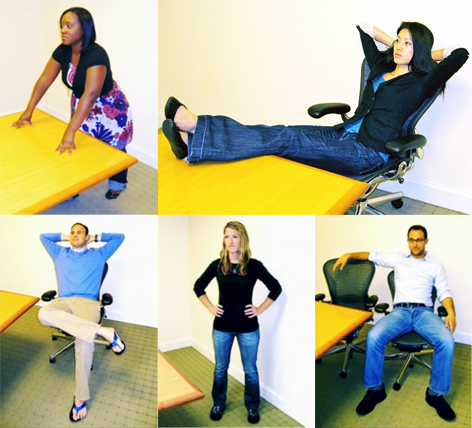As a society, we are obsessed with body language – it allows us to analyze someone partially subconscious thought process. We want to pick up on peoples non-verbal cues, as it is a perceived indicator of what they are really thinking. However, we almost always see body language as something external from ourselves.
Body language is also a powerful manipulator of how people receive you, but it also has a powerful effect on how you perceive yourself. This month’s TED Talk, “Your body language shapes who you are” by Amy Cuddy explores the science of personal body language perception.
One of the most important lessons I have learned from this TED Talk is the importance of Power posing. Power posing, interestingly enough, is when you stand in powerful poses for roughly two minutes. Typical power poses require you to spread out as much as possible – stand with your legs squared to your shoulders and your hand on your hips our outreached or place your hands flat on a table while standing. If you need inspiration, think of the poses you see from powerful CEO-types in the media.
Power posing, for two minutes, can help increase your testosterone and lower your cortisol, which has the overall effect of making you seem more commanding or positively increasing your presence. You come across as a more confident,
Power posing is a technique I have personally tried before, especially before interviews. I can personally attest to feeling more confident, and having a more communicative interview after power posing – especially compared to interviews where I have gone in after low-power posing (such as hunching my shoulders or glancing at my phone). I feel as if my responses to questions were more coherent, and my ability to react to questions was quicker. I have found that power posing forces a confidence boost, which makes me feel like I am more qualified for the interview (reducing that “I’m-not-supposed-to-be-here” feeling, which sucks).
Power posing, and more general awareness of body language can be used in many more situation than just interviews – it may help you feel more confident when walking into a seminar, or help you understand group dynamic better while working on a project. Being more aware of how your body language is being perceived is an important skill to hone, as it can often give away more information about you than your words.
Try taking power posing into the upcoming school year, it may just change how people perceive you – but more importantly, how you perceive yourself.
Have you used power posing before, or something similar? What did you think? Tell us in the comments, or tweet us at @ubcpharmacy.
–Sukhman Perhar, Communications and Marketing


 Follow
Follow